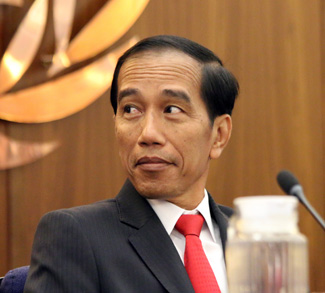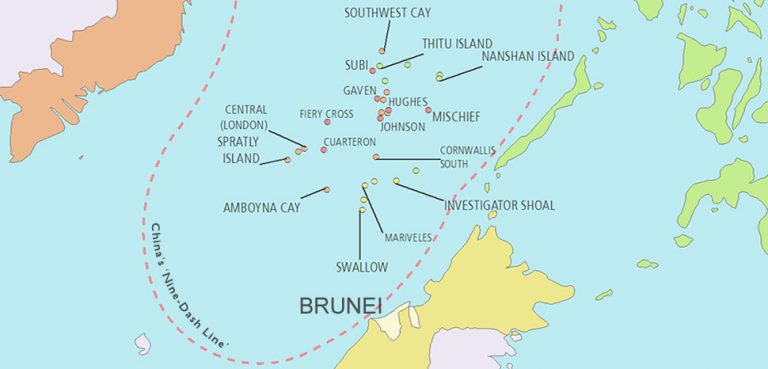On 11 January, Malaysia’s king Sultan Abdullah Ahmad Shah declared a nationwide state of emergency to combat a rise in COVID-19 cases, on the advice of Prime Minister Muhyiddin Yassin. The proclamation was roundly criticized by opponents, who accused Muhyiddin of using the pandemic to avoid scrutiny of his government and cling to power, all at a time when his razor-thin parliamentary majority is under threat. The emergency measures mean parliament is suspended until August and no elections can take place.
Muhyiddin claims the state of emergency is necessary to protect the health system, insisting it is “not a military coup” whilst assuring “the civilian government will continue to function.” He has also vowed to hold a general election when the COVID-19 threat has eased, forming a special committee to determine when it is safe. Ironically, the state of emergency has provided for a period of calm in Malaysian politics, following a year in which Muhyiddin replaced Mahathir Mohamed as prime minister amid a power struggle.
Mahathir had resigned last February, hoping to reshape his unsteady Pakatan Harapan reformist bloc to stay on as prime minister, but was ousted after Muhyiddin partnered with the opposition United Malays National Organisation (UMNO) to form the nationalist, multi-party Perikatan Nasional coalition. The new coalition has proven equally unstable, and amid the impasse created by the state of emergency, political maneuvering and election talk is rampant, with Muhyiddin and opposition leader Anwar Ibrahim the main contenders.
COVID-19 state of emergency
Muhyiddin’s chances will mainly depend on how the government handles the COVID-19 pandemic. The state of emergency saw Movement Control Orders being reintroduced in an attempt to slow the spread of the virus, after cases spread rapidly across the country following the Sabah state election last September. In early-January, Muhyiddin said Malaysia’s health system had reached “breaking point” and by the end of the month, over 5,000 daily cases were being recorded. Daily cases have since declined to below 2,000.
Opponents have questioned whether the state of emergency was necessary, as Muhyiddin successfully handled the initial COVID-19 wave from March–May 2020 without declaring a similar emergency. Anwar labelled the proclamation “illegitimate” and claimed Muhyiddin’s real motive was centred on “retaining power,” while former prime minister Mahathir said Malaysia had descended into “a kind of dictatorship where people cannot protest or question [the government].”
Pakatan Harapan, now in opposition, said the state of emergency “inhibited democracy” and removed “checks and balances” on the government, accusing Muhyiddin of using the law to “save” himself from an election. His ruling Perikatan Nasional has been under constant pressure since taking office in March 2020, depending on a fractured support base and narrowly passing a budget in November that doubled as a confidence vote, while Anwar has repeatedly claimed he has the support of enough MPs to govern.
Malaysia’s fragile coalition politics
The state of emergency has granted Muhyiddin time to shore up support, with the hope that adequate handling of the pandemic will bolster his case to stay in power. Perikatan Nasional effectively became a minority government on 12 January after two UMNO lawmakers withdrew their support, leaving it with only 109 seats in the 222-member parliament. Yet on 13 March, three Parti Keadilan Rakyat (PKR) MPs from the opposition bloc defected to the government, restoring Muhyiddin’s majority with 112 seats.
The most prominent among these, former Cabinet minister Xavier Jayakumar, cited stability and aiding the economy as reasons for joining Perikatan Nasional. But the opposition alleged that harassment and intimidation of its MPs and the threat of corruption investigations by the government had played a role in the defections. The government has denied these claims and said more opposition MPs want to join.
Yet all is not as rosy as Perikatan Nasional leaders suggest. In early-March, UMNO—the largest party in the ruling bloc and Malaysia’s dominant political force since independence from Britain—indicated it would not campaign as part of the alliance in the next election. UMNO chief Ahmad Maslan stated “there will be no co-operation” with Bersatu, Muhyiddin’s party, either, dealing a major blow to the prime minister. Anwar, sensing an opportunity, has said he is open to working with UMNO.
A bewildering choice for voters
Amid the latest elite politicking, the choice for Malaysian voters is bewildering. The reformist agenda of Mahathir, approved by the electorate in 2018, has since been displaced, and Anwar—who had been set to succeed Mahathir before his government collapsed in early 2020—now holds that mantle. Anwar has indicated that any parties working with Pakatan Harapan must uphold its core values—in particular the inclusion of ethnic minority groups—and “reject graft and all types of corruption and abuse of power.”
Yet in reality, it is a question of securing support and building a broad enough alliance to appeal to the electorate. The UMNO and Parti Islam Se-Malaysia (PAS) majority ethnic Malay vote remains crucial; a fact proven by the role these parties played in toppling the Mahathir government after a succession of by-election defeats. UMNO and PAS are now part of the governing coalition, and Muhyiddin knows he must keep them on side. Just this week, he said that securing victory in the election, “together as one strong coalition,” could result in stability and prosperity in what he called a “New Deal” for Malaysia.
In Muhyiddin’s eyes, unity within Perikatan Nasional represents the best chance of winning. But in the tumultuous climate of Malaysian coalition politics, much uncertainty over his alliance – and the opposition alliance led by Anwar – remains. Secretive discussions, betrayals and switching sides have become prominent features of political deal-making in Kuala Lumpur in recent years; and the loyalty of smaller parties, along with last-minute defections by individual politicians, can tip the balance one way or the other.
As with the last election in 2018, when the polls open, Malaysians might not get what they voted for.


![U.S. Secretary of State Michael R. Pompeo participates in the ASEAN Regional Forum Ministerial in Bangkok, Thailand, on August 2, 2019. [State Department Photo by Ron Przysucha/ Public Domain], cc Flickr U.S. Department of State, modified, http://www.usa.gov/copyright.shtml U.S. Secretary of State Michael R. Pompeo participates in the ASEAN Regional Forum Ministerial in Bangkok, Thailand, on August 2, 2019. [State Department Photo by Ron Przysucha/ Public Domain], cc Flickr U.S. Department of State, modified, http://www.usa.gov/copyright.shtml](https://www.geopoliticalmonitor.com/wp-content/uploads/2020/07/ASEAN2019-768x369.jpg)

